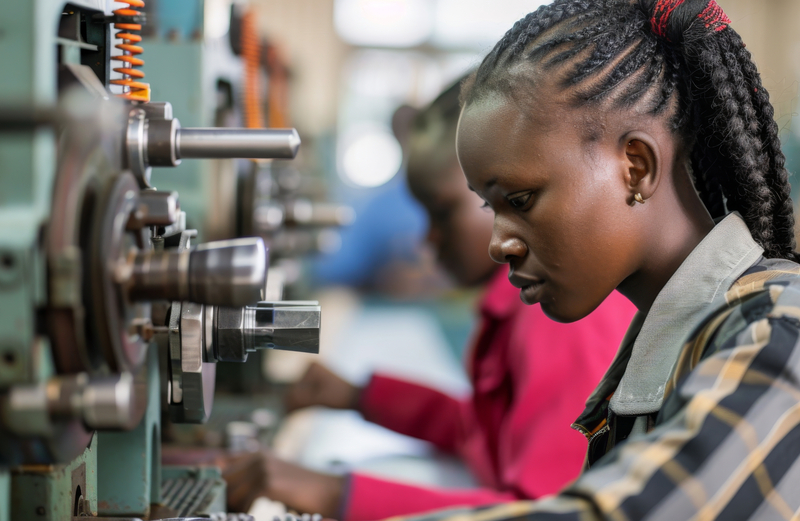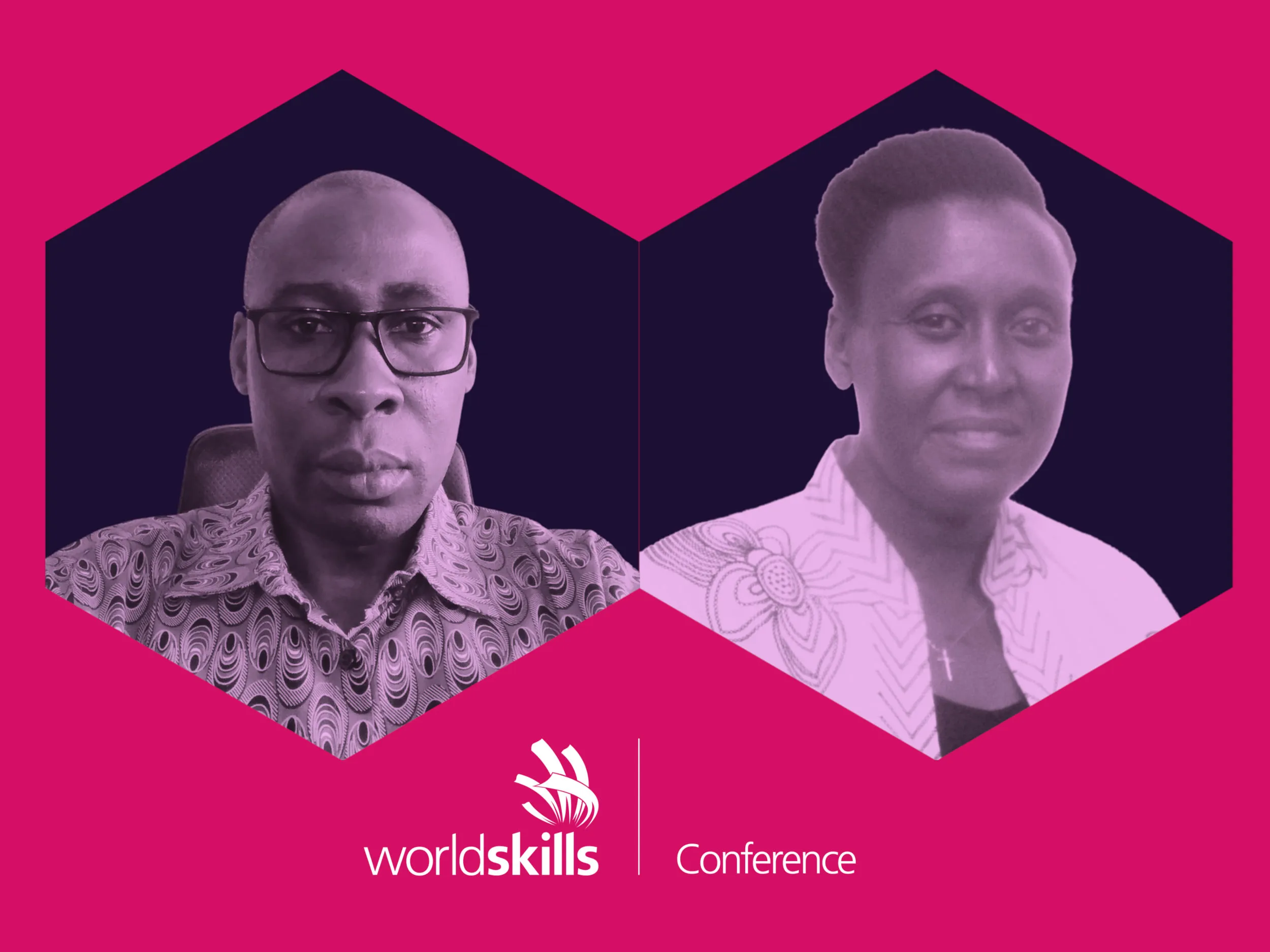Spotlight on the Conference Coalition: How the African Union is Transforming Skills through Worldskills Conference 2024

As a member of the WorldSkills Conference Coalition, the African Union Development Agency (AUDA-NEPAD) is helping shape WorldSkills Conference 2024. We spoke with two key representatives to understand more about their involvement.
Skills development is vital to growth and productivity across Africa. That is why Unami Mpofu, Senior Programme Officer responsible for the WorldSkills Africa Secretariat at the AUDA-NEPAD, and Nicholas Ouma, Senior Youth Advisor at the African Union Commission (AUC), have been active contributors to the Conference Coalition. As Unami says, “Africa is here, Africa is rising, and we want to see TVET transform and meet the needs of our continent and the world.”

Unami and Nicholas are keen to ensure that WorldSkills Conference 2024 reflects the ambitions of this continent in ascendence. But they also hope to bring insights back that will benefit Member countries. Nicholas says, “It is a symbiotic relationship. As Conference Coalition partners, we can help set the agenda and input into discussion areas, so the needs of Africa and its youth are well represented. It also helps us gain access to information, knowledge, and recommendations that permeate into our policy, bolster our development frameworks, and radiate out into our Member countries.”
AUDA-NEPAD wants to ensure that WorldSkills Conference 2024 is about mutual best-practice sharing. Unami says, “Learning from other countries will help us accelerate our own growth and navigate challenges around foundation skills or building TVET systems in fragile economies. Yet we also want to showcase Africa’s potential and inspire others with our progress. This exchange of knowledge and experience at the Conference is crucial for WorldSkills Africa to achieve its goals.”
Unami continues, “It is about what we can bring back to change our curriculum, design processes, engagement strategies with the private sector, and how we train our Experts. For the newer Members of WorldSkills Africa, it is about showing up and saying, we have arrived, and we are here to make the change. And for the countries that are considering becoming a WorldSkills Member, it is about seeing how being a part of this global skills movement can reshape TVET systems in their country.”
This idea draws on Aspiration 6 of Agenda 2063, a visionary framework for Africa’s future that aims to create a people-driven Africa by harnessing the talent of all people, especially women and youth. To achieve Agenda 2063, Unami stresses how important it is for WorldSkills Africa Members to attend the Conference to gain insights and support from their African counterparts and other Members worldwide. Equally important to achieving Agenda 2063 is the need to develop engagement strategies with industry partners to make sure that skills training matches market needs. This is a key objective for WorldSkills Conference 2024 and the hope is that the Conference will build greater connections and collaborations between educators and employers.
Nicholas says, “One crucial lesson we are learning from WorldSkills is the importance of strong partnerships with the private sector and industry. Skills development must be geared towards the labour market, as employers are the ultimate beneficiaries of a skilled workforce. These industry partnerships can help us shape our vision for the future of skills development across the continent.”
Unami agrees, saying, “The question is simple. What do we want skills to look like in Africa, and how can WorldSkills help? We must respond by consistently showcasing the skills that are driving African economies, such as construction, the creative industries, pharmaceutical manufacturing, automotive, and agriculture. These are sectors guaranteed to be found in national development plans across the continent.”
Nicholas will be moderating one of the Conference sessions on “Displacement, climate change, and conflict: Skills initiatives for fragile economies”. He is particularly interested in exploring innovative solutions and policy recommendations for inclusive skills development. He says, “At WorldSkills Africa Swakopmund 2022, we had Team Refugee participating. It got me thinking about how those fragile countries and how we can excite them and mobilise them to embrace change and drive skills development forward.”
As AUDA-NEPAD gears up for WorldSkills Conference 2024, the organization is not just participating but leading the charge in transforming TVET on the continent and beyond. With a focus on inclusive skills development and a commitment to showcasing the best of African talent, the African Union is poised to make a lasting impact on the global stage.
Join the Conference as we shape the future of TVET. Find out more about registration, speakers, and the sessions.
